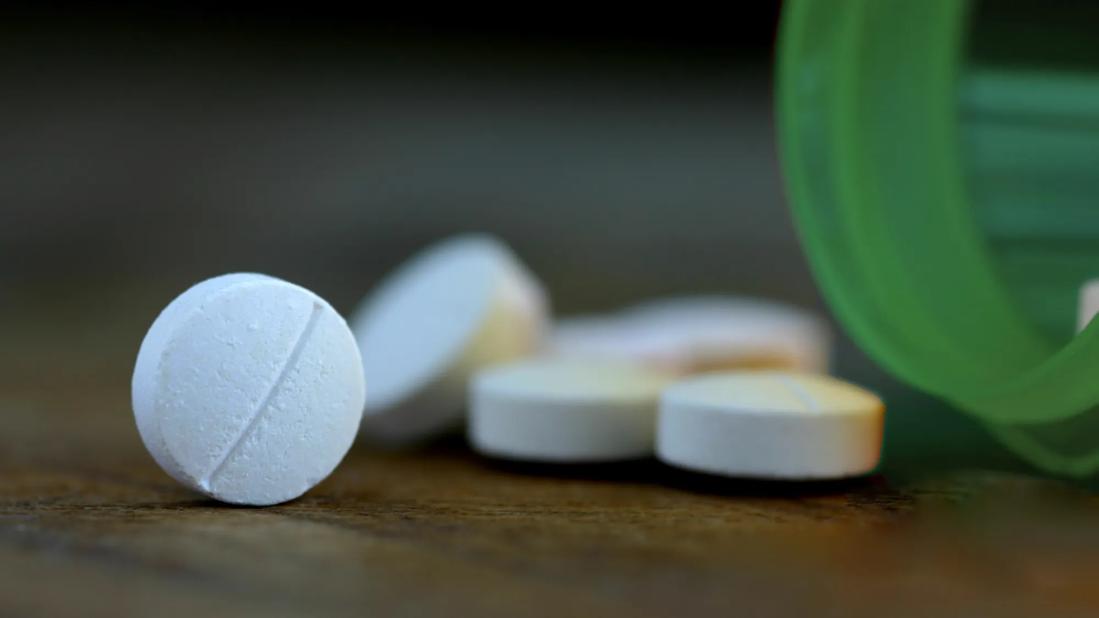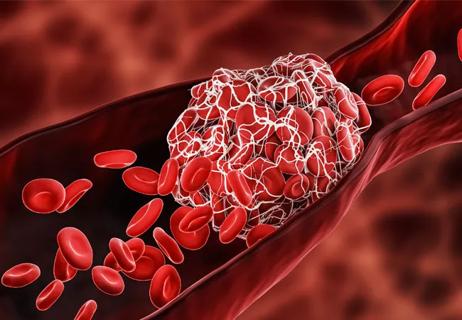Data from combined prospective and retrospective cohorts support the drug’s safety and efficacy for CLVM

Advertisement
Cleveland Clinic is a non-profit academic medical center. Advertising on our site helps support our mission. We do not endorse non-Cleveland Clinic products or services. Policy
I have been treating chronic diseases, including cancers, vascular anomalies and immune deficiencies in children and young adults for more than 25 years.
Investigating these disease processes and their outcomes has always been an important aspect of my practice. I have been the principal investigator on more than 100 pediatric clinical trials, including 40 first-in-children studies, bringing therapies to patients with rare and life-threatening diseases.
Capillary lymphatic venous malformations (CLVM), types of blood vessel abnormalities, are one such condition: These are rare, variable in presentation and associated with high morbidity.
Common symptoms include chronic pain, recurrent infections, bleeding and clotting disorders, functional disabilities, physical deformity and a decreased quality of life. Closely associated syndromes — CLOVES and Klippel-Trenaunay— are characterized by overgrowth and are linked to mutations in the PIK3CA gene.
The wide range of manifestations and relative rarity make large-scale clinical trials challenging. In addition, there are currently no guidelines for managing these disorders.
To address this gap in information, our research team set out to investigate the safety and efficacy of sirolimus, a targeted medication that inhibits the mTOR pathway, in treating CLVM. Sirolimus has shown promise in other vascular anomalies, but its use in CLVM has not been thoroughly studied.
Our comprehensive approach combined prospective and retrospective cohort studies of pediatric and young adult patients with CLVM treated with sirolimus. We assessed disease response, symptom improvement, quality of life (QOL), and radiologic response.
Advertisement
The prospective, phase 2 clinical trial, Clinical Trial Assessing Efficacy and Safety of the mTOR Inhibitor Sirolimus in the Treatment of Complicated Vascular Anomalies (NCT00975819), was FDA-funded and conducted at Cincinnati Children’s Hospital Medical Center (CCHMC) and Boston Children’s Hospital (BCH). The study followed patients for 12 months, using standardized scales to assess functional impairments, radiographic changes and QOL.
The retrospective study was an international and multicenter review of patients with vascular anomalies treated with sirolimus for at least three months, following the same protocol as the clinical trial. The research gathered data on treatment regimens, symptom responses, and toxicities.
Our key findings indicated that sirolimus effectively reduces complications and improves QOL in individuals with CLVM. Of the 29 individuals included in the study (11 from the prospective study and 18 from the retrospective study), 93% reported improved QOL, and 86% showed improvement in at least one symptom.
Notably, 100% of patients with bleeding complications and 89% with thrombotic complications experienced significant improvements, supported by decreases in mean D-dimer levels and increases in mean fibrinogen levels.
Importantly, no patients had progressive disease while on sirolimus.
The safety profile was also promising. There were some side effects, including neutropenia, lymphopenia, infection and aphthous ulcers/stomatitis, but not life-threatening or warranted discontinuation of the treatment.
Advertisement
These findings support the growing consensus on the effectiveness and safety of sirolimus in managing complex vascular anomalies.
Our results align with smaller studies and case reports indicating sirolimus' potential benefits in this patient population. However, our design—a larger cohort and a combined analysis of both prospective and retrospective data—provides more robust evidence.
The clinical implications of our work are significant. Sirolimus offers a viable treatment option for patients with CLVM, reducing morbidity and enhancing QOL. Its ability to address bleeding and thrombotic complications is particularly impactful, given the severe consequences of these issues in CLVM patients. Moreover, the tolerability of sirolimus, with manageable side effects, such as neutropenia and infection, underscores its potential as a long-term treatment option.
Our study highlights sirolimus as a promising therapy for CLVM, addressing an unmet clinical need for effective treatments in this rare and complex condition. As we continue to understand the genetic and pathophysiological underpinnings of CLVM and associated syndromes, sirolimus offers a targeted approach that can significantly improve patient outcomes.
Further research is needed to explore the long-term effects of sirolimus and its potential in combination with other emerging therapies, ensuring we provide the best possible care for individuals affected by these challenging disorders.
References
Engel ER, Hammill A, Adams D, et al. Response to sirolimus in capillary lymphatic venous malformations and associated syndromes: Impact on symptomatology, quality of life, and radiographic response. Pediatr Blood Cancer. 2023 Apr;70(4):e30215. doi: 10.1002/pbc.30215. Epub 2023 Jan 18. PMID: 36651691.
Advertisement
Wassef M, Blei F, Adams DM, et al. Vascular anomalies classification: recommendations from the International Society for the Study of Vascular Anomalies. Pediatrics. 2015; 136: e203-e214.
Kurek KC, Luks VL, Ayturk UM, et al. Somatic mosaic activating mutations in PIK3CA cause CLOVES syndrome. Am J Hum Genet. 2012; 90(6): 1108-1115.
Luks VL, Kamitaki N, Vivero MP, et al. Lymphatic and other vascular malformative/overgrowth disorders are caused by somatic mutations in PIK3CA. J Pediatr. 2015; 166(4):1048-1054.e1-5.
DM, Trenor CC III, Hammil AM, et al. Efficacy and safety of sirolimus in the treatment of complicated vascular anomalies. Pediatrics. 2016; 137:e20153257.
Nadal M, Giraudeau B, Tavernier E, et al. Efficacy and safety of mammalian target of rapamycin inhibitors in vascular anomalies: a systematic review. Acta Derm Venereol. 2016; 96: 448-452.
Hammill AM, Wentzel M, Gupta A, et al. Sirolimus for the treatment of complicated vascular anomalies in children. Pediatr Blood Cancer. 2011; 57: 1018-1024.
Lackner H, Karastaneva A, Schwinger W, et al. Sirolimus for the treatment of children with various complicated vascular anomalies. Eur J Pediatr. 2015; 174: 1579-1584.
About the author: Dr. Kelly is a staff member of the Department of Pediatric Hematology, Oncology, and Blood and Bone Marrow Transplantation at Cleveland Clinic Children’s. Since arriving at Cleveland Clinic in 2020, he’s been working with the program and organizational leadership to develop and expand the vascular anomalies program to create a national and international resource for the expert care of children and adults with vascular anomalies and vascular tumors.
Advertisement
Advertisement

Genetic changes are similar between some vascular anomalies and cancers

Findings help close the knowledge gap around VTE practice patterns

Novel approach outperforms standard of care for post-PVI stenosis and occlusion

An updated review of risk factors, management and treatment considerations

Oral anticoagulants may be beneficial but need to be balanced against bleeding risks

Redesigned protocols enhance infection-prevention measures

Clinicians highlight the need to educate patients about warning signs

Patients with a prior history of VTA are at an increased risk of subsequent incidents, despite treatment with therapeutic anticoagulation